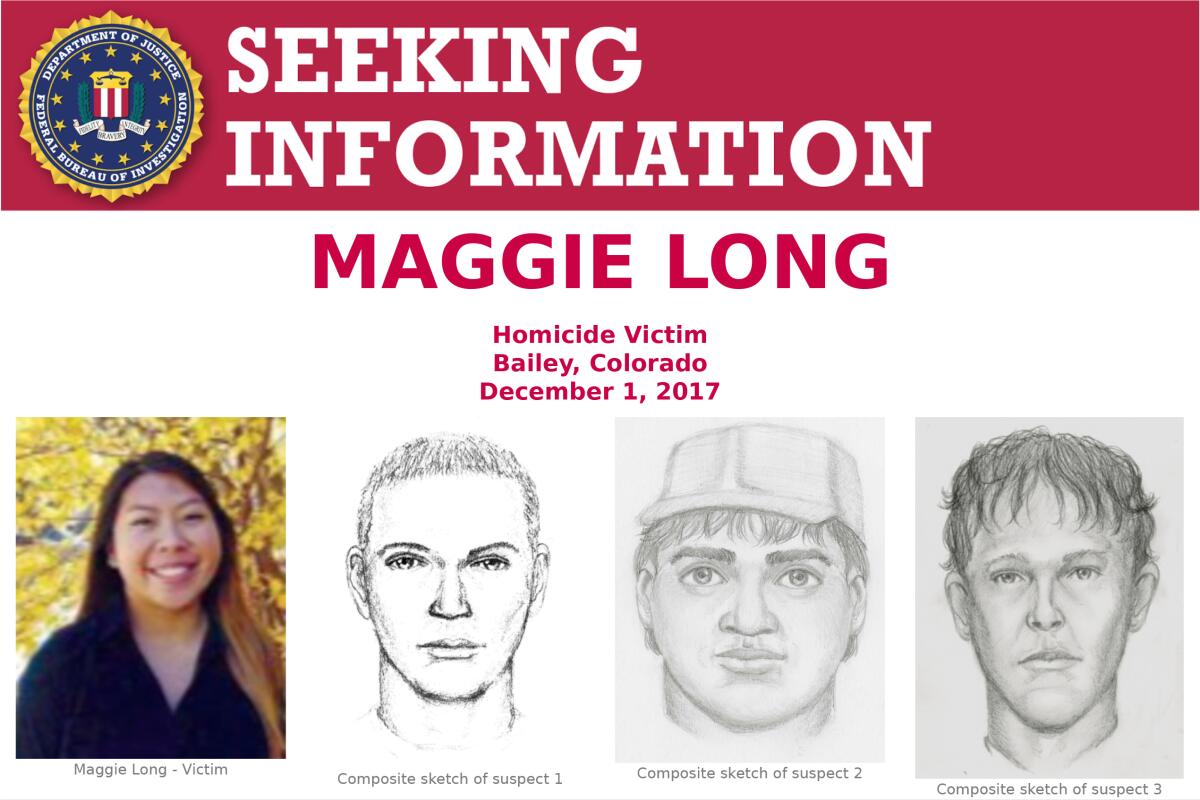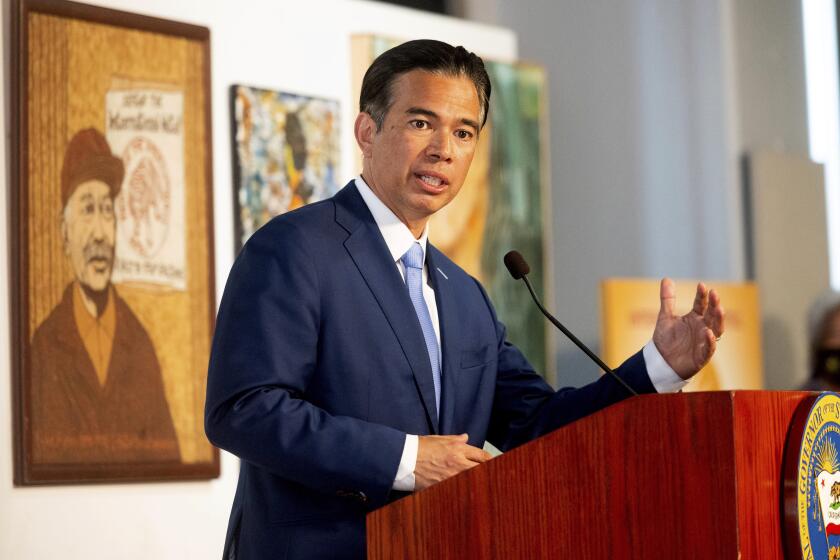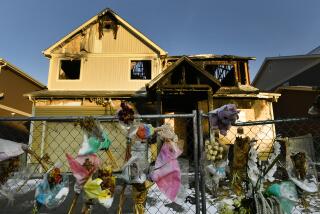2017 burning death of Asian American teen being investigated as hate crime

The FBI has revealed that it is investigating the 2017 death of an Asian American teenager in Colorado as a possible hate crime, a grisly case in which local authorities said she was purposely set on fire and burned alive in her family’s mountain community home.
The FBI said in a statement Monday to Denver news station KCNC-TV that it was looking into the death of 17-year-old Maggie Long as a “hate crime matter.”
Long’s death was ruled a homicide, and authorities later released composite sketches of three of the men they believed were involved in her death. No arrests have been made.
The FBI did not provide any information about why agents were looking at the slaying as a possible hate crime and did not immediately respond to requests for comment from the Associated Press on Tuesday.
Long’s body was found inside her family’s home in December 2017 in Bailey, a mountain community about 45 miles southwest of Denver. A fire had broken out following a report of a disturbance.
Investigators believe there was an argument or fight between Long and her attackers before the fire started. Park County Sheriff Tom McGraw has said that Long was “purposely set on fire and burned alive.”
Atty. Gen. Rob Bonta, who says he was called racist names and never felt like he belonged while growing up in the Sacramento area, calls fighting anti-Asian racism one of his top priorities.
A Beretta handgun, an AK-47-style rifle, 2,000 rounds of ammunition, a safe and jade figurines were stolen from the home, authorities said.
The FBI’s hate-crime investigation into Long’s death comes amid a nationwide series of attacks that have targeted Asian Americans since the coronavirus took hold in the U.S. after surfacing in China.
Long’s sisters, Lynna and Connie Long, said they did not notice any overt Asian discrimination when they lived in the community.
Lynna Long said she hoped the shift in the investigation’s focus would encourage people to reconsider interactions they may have had around the time her sister was killed and if anyone expressed bias toward Asian Americans.
“This is an angle that wasn’t looked into in the past, and at this point, it is no stone left unturned. Looking at the extent of violence in this crime, that is certainly an angle to look more closely into,” she said.
More to Read
Start your day right
Sign up for Essential California for news, features and recommendations from the L.A. Times and beyond in your inbox six days a week.
You may occasionally receive promotional content from the Los Angeles Times.







